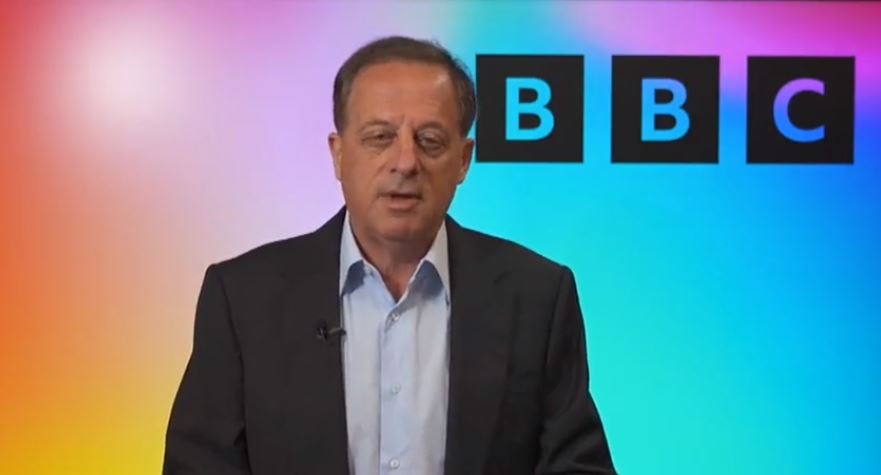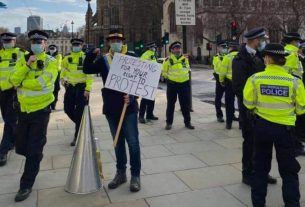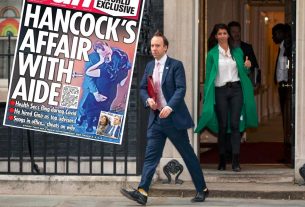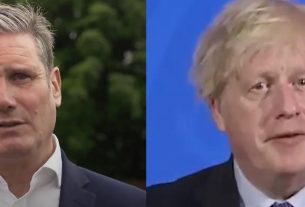BBC chairman Richard Sharp has resigned after an investigation found he failed to disclose key information about his relationship with Boris Johnson before his appointment in 2021.
Sharp’s position came under scrutiny when it was revealed he facilitated an £800,000 loan for the disgraced former prime minister before Johnson appointed him BBC chairman. Sharp failed to tell the appointments panel of his role in helping Johnson secure the loan.
Former commissioner for public appointments Sir Peter Riddell said Johnson was also “conflicted” in the process and that questions need to be asked about the loan made to him.
Riddell was commissioner when Sharp was appointed BBC chairman and said “big questions remain…about conflicts involving Boris Johnson’s role [in Sharp’s appointment] and about who made the loan to him.”
When asked this morning about Sharp, a dishevelled Johnson ignored the questions.
When Rishi Sunak was asked why he had not sacked Sharp “months ago”, and if the saga was “a stain on [Oliver Dowden] the new deputy prime minister’s judgment”, Sunak said: “This is about doing things properly, professionally, and when concerns are raised it’s right that there is a proper process, an independent process that we don’t prejudge.
“We allow it to carry on, establish the facts as to what happened, reach a conclusion. That’s happened. Richard Sharp has resigned. But it’s right that we do these things properly and professionally.”
Dowden was culture secretary when Sharp was appointed.
Sunak is under pressure about the next appointment. Sharp’s resignation has ignited criticism that the BBC has been flooded with Tory cronies through political appointments. Under the current system, the prime minister gets to choose and appoint who will become the next BBC chairman.
Gary Lineker, the BBC’s top paid presenter – who was recently suspended from hosting Match of the Day after tweeting about the government’s rhetoric towards refugees – commented on Twitter today: “The BBC chairman should not be selected by the government of the day. Not now, not ever.”
Among the leading contenders to replace Sharp as BBC chairman are former chancellor of the exchequer George Osborne and Jay Hunt, an executive director at Apple TV who was also controller of BBC One during a long stint at the state broadcaster. Hunt was also chief creative officer of Channel 4.
Baroness Morgan, former culture secretary under David Cameron, and broadcaster Sir Trevor Philips, the former Labour politician and former chair of the Equality and Human Rights Commission (EHRC), are also in the running. As too is the chair of the John Lewis Partnership, Dame Sharon White who was also previously chief executive at Ofcom.




